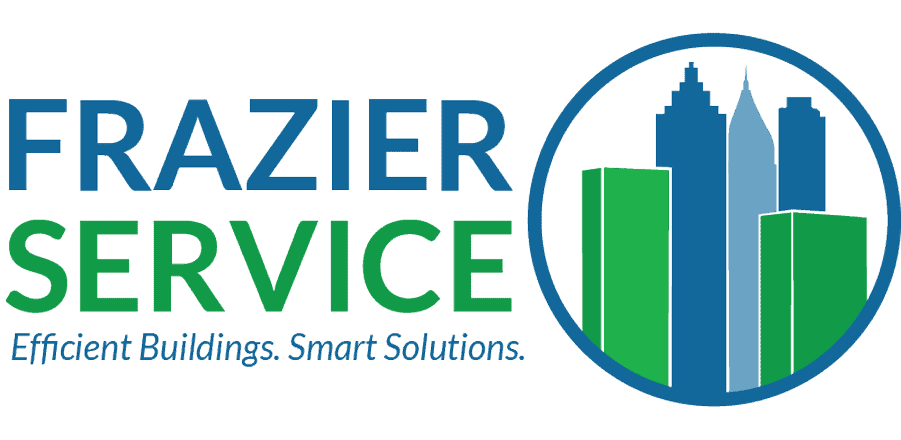
Access Control Systems and Energy Savings: What You Need To Know
Energy costs have steadily grown over the past decade. Considering electricity usage accounts for 61% of utility bills in commercial buildings, reducing energy consumption can deliver significant savings for a business.
If you’re looking to improve your bottom line, integrating access control systems into your building management can be extremely beneficial. Keep reading to discover how access controls deliver a more sustainable approach to commercial energy consumption.
How Access Control Systems Reduce Energy Use
For most businesses, reducing operating costs is at the forefront of their annual goals. By combining access control systems with your building automation controls, you achieve:
- Detailed facility analysis
- Improved system control
- Reduced energy consumption
Let’s take a closer look at how integration makes sense for your business.
Using Space To Improve Efficiency
Foot traffic varies in most commercial buildings. High-use areas see a lot of activity, while low-use areas are only accessed occasionally. This discrepancy makes it difficult to manage your property’s lighting, heating, and cooling.
Access control systems can help you assess how and when different areas in your building are used. These systems rely on sensors that monitor space use at your facility, including:
- Building occupant patterns
- Rooms in your facility with heavy activity
- Underused spaces in your building
- Areas in your building that become busier/slower throughout the year
- How the weather and seasons affect occupant activity
Once this information is collected, access control systems produce detailed reports highlighting the most effective ways to distribute resources.
Reduce Energy Consumption With HVAC Automation
It takes a significant amount of energy to cool air and distribute it throughout your building. Not surprisingly, HVAC equipment is typically responsible for at least 40% of a commercial building’s energy usage.
That’s why businesses are starting to integrate access control systems with their HVAC units, as it’s an efficient way to reduce energy consumption while maintaining occupant comfort.
Access control software collects information from several HVAC sensor points, interpreting data in real time through a cloud-based system. This enables you to:
- Limit HVAC consumption in unoccupied building zones
- Identify, detect, and diagnose faulty performance
- Reduce HVAC usage during peak energy demand
Once your HVAC is integrated with an access control system, there are two main ways you can save on energy costs, including:
System Control Activation
Building control systems can be programmed to lower energy use after regular business hours. If an ID card is used to access the facility outside of operating hours, the integrated system will automatically start running facility appliances for a set period of time. This maintains a comfortable work environment while preventing excessive energy consumption. Additionally, integrated systems can identify access patterns throughout the workday. This reduces your HVAC and lighting usage when nobody is in the room.
Event Management
Another benefit of integrated systems is the ability to manage meetings and other onsite events. You can pre-program your ideal room setting via access control, ensuring different areas in your building are ready to go before scheduled events. Once the event ends, sensors identify when occupants leave the room, then turn your system idle to prevent unnecessary energy usage. Integrating access control systems into your building’s management system is a surefire way to reduce energy costs.
Frequently Asked Questions
Trying to decide if access control systems are right for your business? See if these FAQs can bring some clarity.
I Manage a Commercial Building in Atlanta—Can Access Control Systems Help Me Beyond Energy Savings?
Of course! While this blog highlighted the relationship access control has with energy savings, the benefits for commercial buildings extend far beyond utility bills. Generally speaking, there are three main functions of access control:
Credentials
Access control systems provide a variety of services, with the most popular being cards and ID badges that allow people to enter your building. Access control cards (also referred to as proximity cards) don’t need to be swiped like credit cards. Instead, you just hold your card a few inches away from the scanner.
Management Dashboards
Management dashboards are the admin-facing side of an access control system. This is where your CIO, CTO, or facility manager controls the permissions given to individuals, including where occupants are permitted to go within your building.
Building Security
Access control systems also improve building security by integrating with your:
- Control servers
- Access panels
- Lock hardware
- Electric doors
This automatically locks your entryways after occupants enter the building, helping you maintain a safe and secure business.
Do Access Control Systems Require Maintenance?
Simply put, yes. All too often, owners of access control systems don’t realize what actual maintenance is required. To them, maintenance means cleaning circuit boards or sweeping out control panels—but that type of cleaning isn’t necessary.
Access controls consist of an entire network of sensors and devices. Over time, it’s normal for these sensors to change calibration and positioning. As part of your maintenance plan, have a technician inspect your dampers and valves to confirm they’re operating in the required control range. It’s also a good idea to have your system’s calibration and sensing accuracy checked.
How Do I Find a Provider for Controlled Access in Atlanta?
When it comes to access control in Atlanta, GA, you need a professional to install a high-quality system. To find a reputable vendor, start with online reviews. Compile a list of potential providers and read their customer testimonials. Firsthand experiences deliver a comprehensive picture of how a company operates and the quality of their service.
Your Top Choice for Access Control Systems in Atlanta, GA
Since 1973, Frazier Service has been helping local businesses optimize their facility operations. From energy retrofits to smart building technology, we have the resources needed to improve your bottom line. Ready to reduce your energy consumption? Start a conversation with Frazier and ask about our building management technology.








